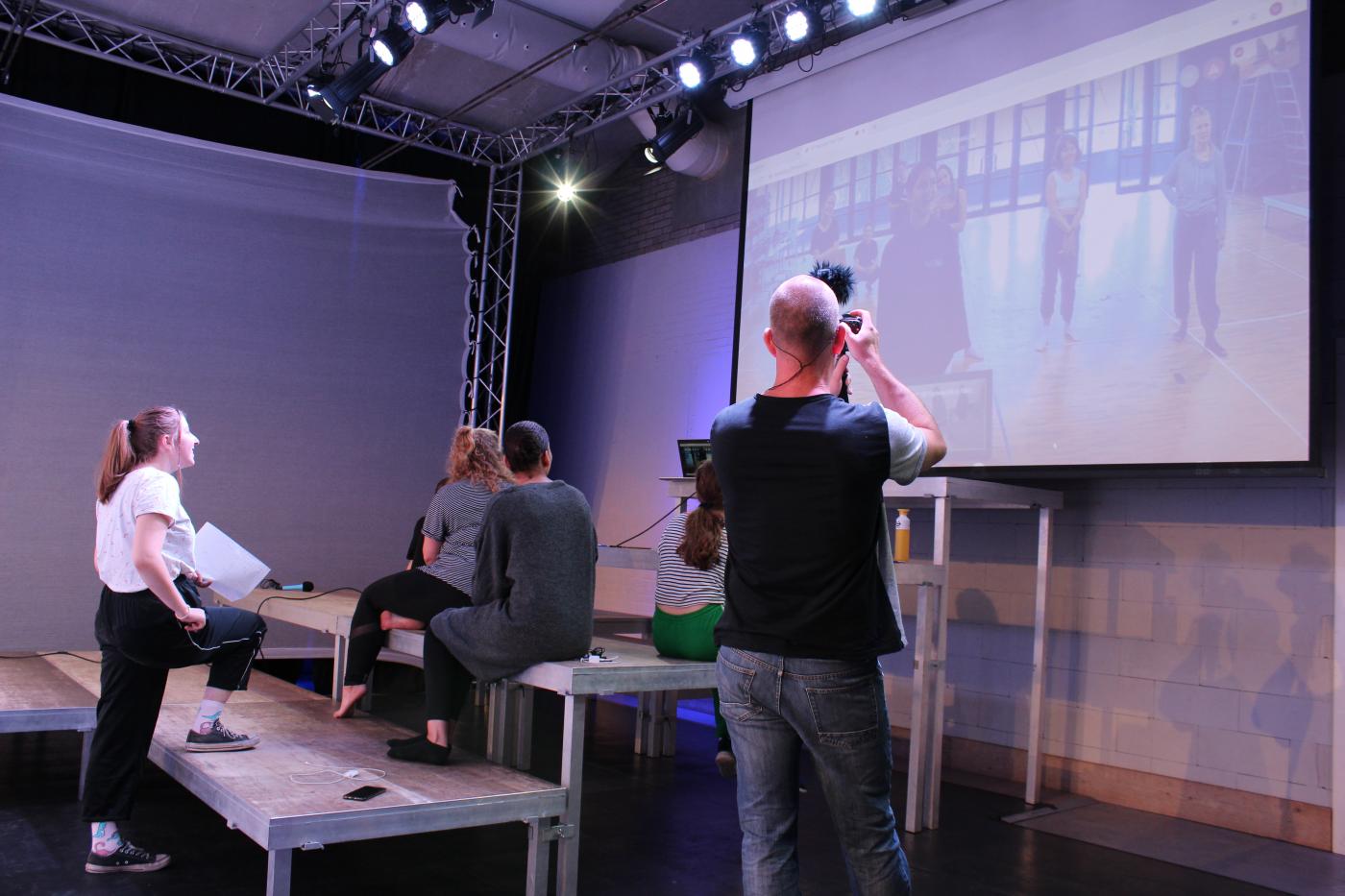Go figure! You’ve set up an ambitious cultural exchange programme, which will see youths from Deventer and Berlin engage in an intensive collaboration to create a dance theatre performance, only for corona to throw a spanner in the works. That leaves you with two choices: you can admit defeat in face of the circumstances, or you can take up the gauntlet and unleash your creativity on the new normal – which is what Theaterschip and its German collaboration partner ACADEMY did.
This is the English version of an article we published earlier. The Dutch version can be found here.
Together with Parallelle Perspectieven, Theaterschip (Deventer) and ACADEMY (Berlin) are developing an exchange format in which youths work with young professionals to create a performance about a socioculturally relevant subject. In the project’s pilot year, and in consultation with youths from the two organisations, three young choreographers chose the subject of (performance) pressure. “Despite corona, we managed to maintain a high level of quality.”
Production manager Milou Brouwer“Above all, it was a question of rapidly and frequently shifting gears”
“The situation changed almost every week, forcing us to make new choices. We also had to figure out the dos and don’ts of online collaboration. In the beginning, we had Zoom switched on all day during each other’s rehearsals, for example, but that turned out to be more distraction than help. It was more effective to formulate focused questions and assignments at specific moments,” says production manager Milou Brouwer.
Tandem partners
In dialogue with the ten participating youths (five from Deventer, five from Berlin), three young makers arrived at the theme of PPPressure. The idea was for the participants to meet up in August for a research week, but that plan was cancelled at the last moment, mainly on account of the high number of corona infections in Berlin. “Instead, we decided to assign a tandem partner to each of the Dutch youths,” Brouwer explains.
“The choreographers came up with assignments for the pairs in preparation for the performance. Like ‘read a poem to each other before bed’, or ‘do a sequence of movements via Facetime.’”
New moves
Nina (25) was one of the Dutch participants, and was paired with Svana from Germany. “We called and video chatted a lot, and created scenes and wrote texts that way. The combination was really inspiring. Her background is more in dancing, while I’m a complete theatre freak, not a dancer or sporty person at all. Having to do those sequences taught me new movements, which made me feel and think differently, and I learned to express my emotions in new ways. And that in turn is something I can use onstage.”
Of course, Nina is disappointed that she won’t be able to perform in Germany. “The different culture makes it interesting. When you perform together, things start to blend – for example, you learn each other’s warming-up techniques.” Still, the remote interaction with her tandem partner also had creative advantages.
Nina (25), participant“Because we mostly spoke over the phone, the other remained this kind of mysterious person, instead of someone you were accountable to. Thanks to that, I felt more at ease expressing myself.”
People person
Choreographer Elena Iachininoto supervised the five Dutch participants. “I’m a real people person, so for me it was quite a change to interact primarily by app, mail and video. It requires more preparation. I learned to be very clear – when you are physically working together in the same space, you can afford to be a bit more vague, artistically. But now, I needed to be specific and keep repeating things.” It was not just the performers who learned from the makers; the opposite was true as well. “At times, I had a very definite concept in mind, but then the performers came up with something different, like putting the scenes in a different order,” Elena says. “I really learned to let go of my own preferences. You have to adapt to your material and to what your performers come up with.”
Proud
The choreographer is very pleased with the final result. The Dutch performance was staged in Deventer and shown in Berlin as a video, while the German performance was staged in Berlin and shown in Deventer. Both performances incorporated video images of the other performance. Production manager Milou Brouwer, too, is pleased with both the result and the process. “I am proud that we managed to persist, despite corona. That the quality remained solid, despite having to collaborate online with our new German partner.
Production manager Milou Brouwer“We kept looking for opportunities. At no point did we consider throwing in the towel. And it shows in the final product.”
The full documentary about how to collaborate remotely during COVID can be found here.
Collaborating with a German partner?
Are you planning to collaborate or want to collaborate with a German partner? We will be continuing our collaboration with Fonds Soziokultur in the coming two years. You and your German partner can apply for a subsidy from both Funds.
More information about collaboration and grants





